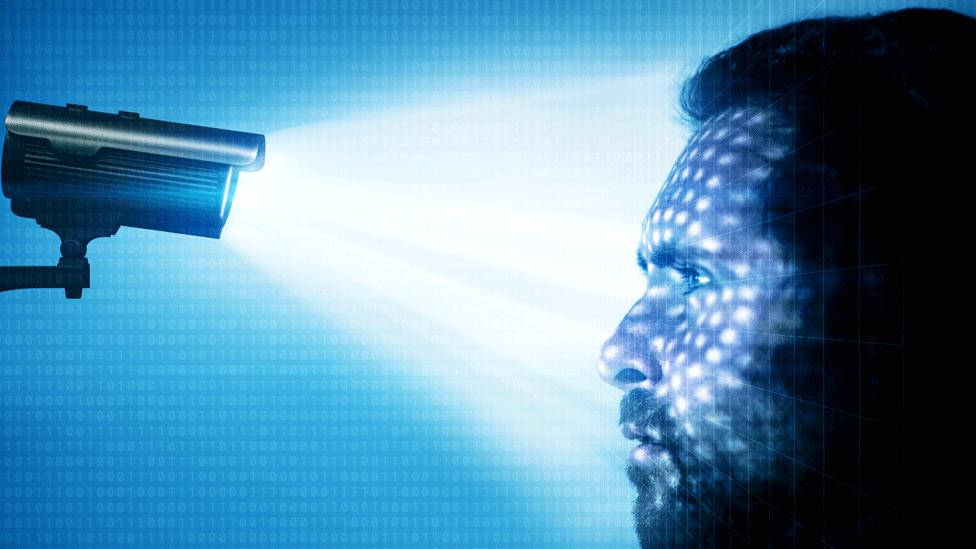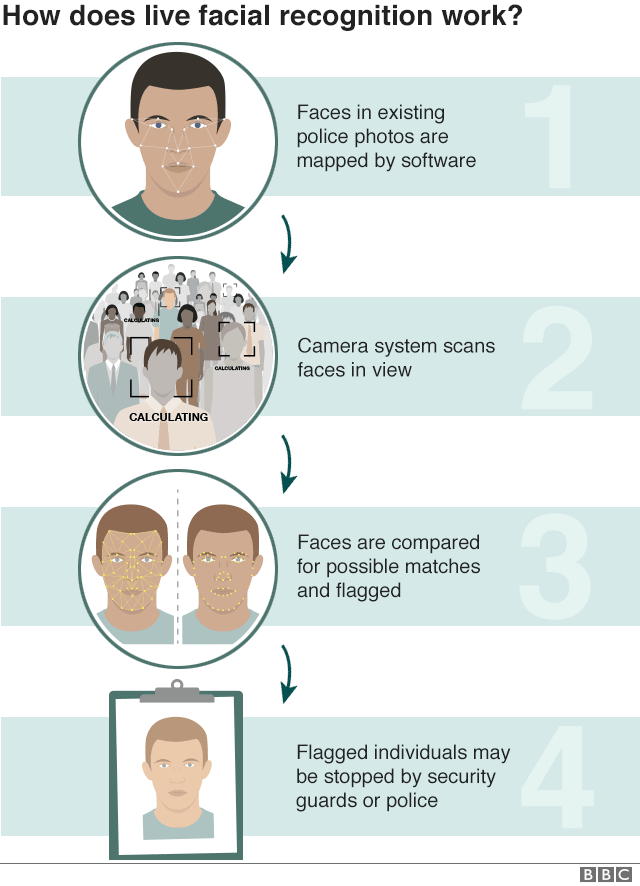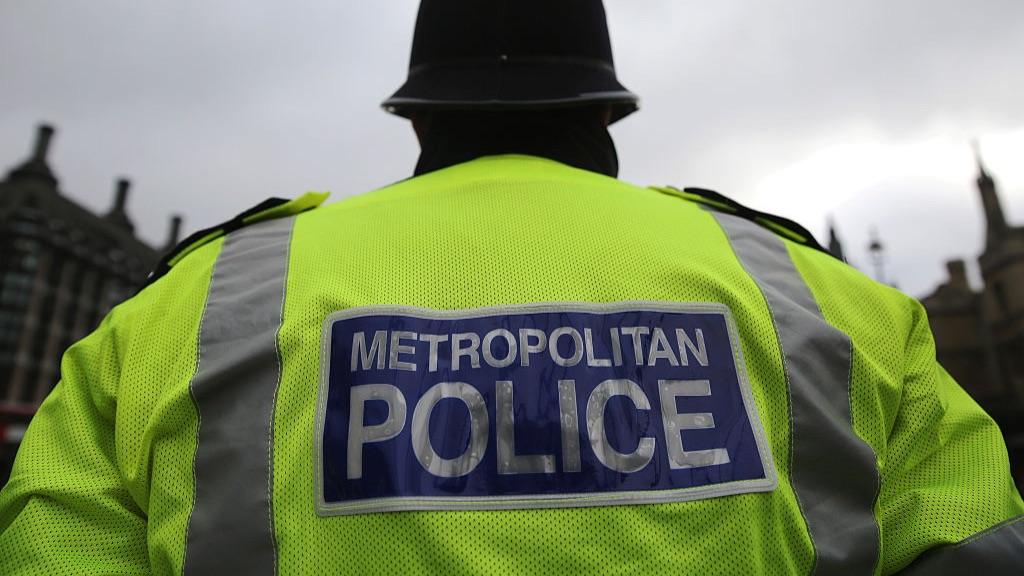Musicians call for facial recognition ban at gigs
- Published

Some bands think facial recognition at concerts is a step too far
Musicians have added their voices to calls for restrictions on the use of facial recognition technology at concerts.
Former Rage Against the Machine member Tom Morello and band Speedy Ortiz have joined a campaign by digital rights group Fight for the Future, external.
They want Ticketmaster to roll back its plans to use facial recognition as an alternative to tickets at events.
They argue it could be used to target music fans.
In a tweet, Tom Morello said: "I don't want Big Brother at my shows targeting fans for harassment, deportation or arrest."
Allow X content?
This article contains content provided by X. We ask for your permission before anything is loaded, as they may be using cookies and other technologies. You may want to read X’s cookie policy, external and privacy policy, external before accepting. To view this content choose ‘accept and continue’.
Fight for the Future added: "Music fans should feel safe and respected at festivals and shows, not subjected to invasive biometric surveillance."
"Facial recognition is a uniquely dangerous form of surveillance. It enables ubiquitous monitoring of an entire crowd and could easily be used to target music fans for things like minor drug possession, immigration status, or having a warrant."
Allow X content?
This article contains content provided by X. We ask for your permission before anything is loaded, as they may be using cookies and other technologies. You may want to read X’s cookie policy, external and privacy policy, external before accepting. To view this content choose ‘accept and continue’.
Known stalkers
Ticketmaster's parent company Live Nation announced in May 2018 that to stop fans having to use tickets, it was teaming up with Blink Identity, which uses technology to scan people's faces as they enter concert venues.
While that would undoubtedly add to convenience and cut down on queues, there have been some unintended consequences of using such technology in the past.
It was used at a Taylor Swift concert in 2018 to search the crowd for known stalkers and in China a man was arrested at a concert for pop star Jacky Cheung for economic crimes.
And in the UK, London's Metropolitan Police Service admitted it had supplied images for a database used to carry out facial recognition at a development of shops and offices.

- Published6 September 2019
